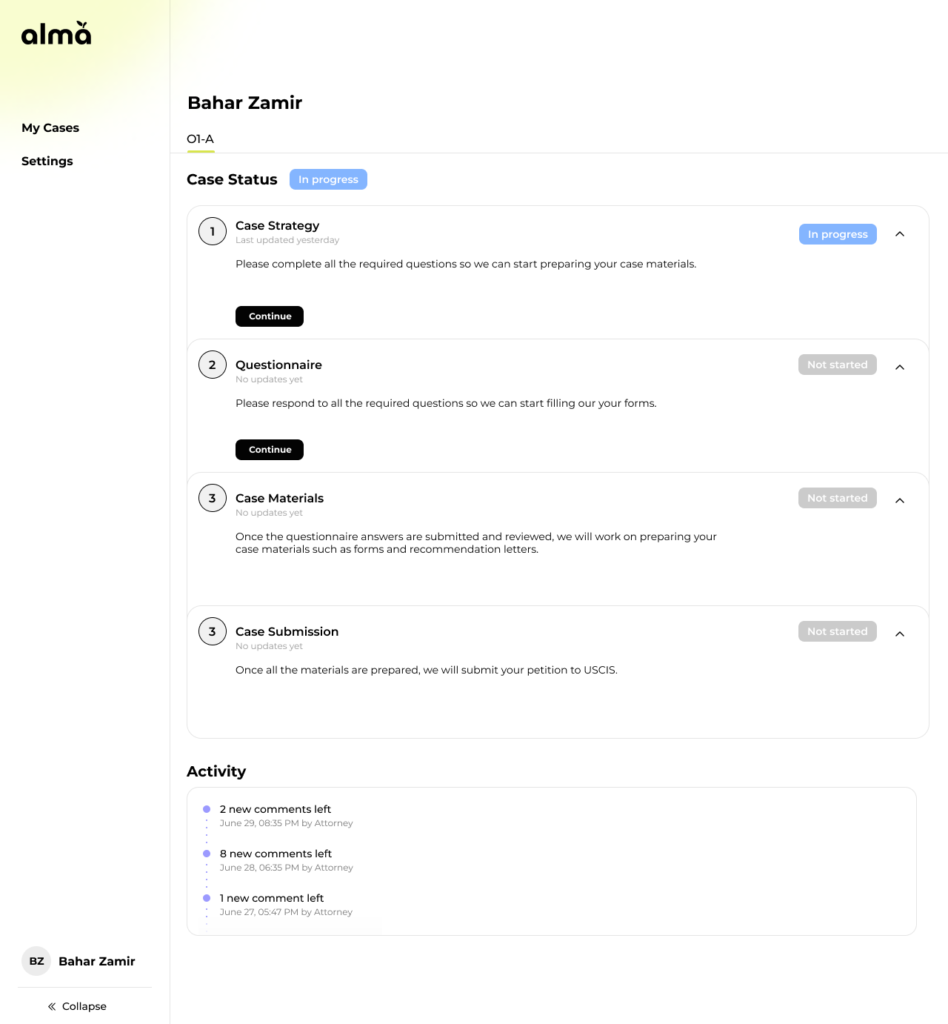When Aizada Marat relocated from New York to California in 2018 with her husband, KODIF co-founder and CEO Chyngyz Dzhumanazarov, she anticipated a smooth transition. However, the journey to sort out her immigration status quickly turned into a nightmare.
Marat, a Harvard-educated attorney born in Kyrgyzstan, initially came to the U.S. at 17 for an exchange year through the U.S. State Department’s Future Leaders Exchange (FLEX) program. After graduating from Harvard, she moved to London due to immigration issues. Now, she was moving to California with Dzhumanazarov, who had been admitted to Stanford Business School, while she had a job offer from the leading law firm Cooley.
Unbeknownst to her, the world of immigration law can be a minefield. A simple Google search led her to a lawyer in Palo Alto, a decision that would cost her dearly. The lawyer’s incorrect advice about her work authorization timeline left Marat unable to work for over a year and confined to the country.
“I’m a lawyer, so I listen to what lawyers say,” Marat told TechCrunch. “Unfortunately, listening to them was devastating because months later, I was still unable to work. I had a job offer from Cooley.”
Despite these setbacks, Marat eventually secured her position at Cooley for three years. She confronted the immigration law firm about their mistake, which ignited an entrepreneurial fire within her. This experience led her to question why immigration legal services were so fragmented and often of poor quality.

Immigration law, she discovered, is highly fragmented. About 10% of the market is dominated by one law firm, while over 20,000 firms share the remaining 90%.
“Very few big law firms offer immigration services because they primarily serve individuals, and those are small checks,” Marat explained. “To get a talent visa, most people can self-petition without needing an employer. In my case, Cooley wouldn’t sponsor visas, so I had to navigate it myself.”
Determined to prevent others from experiencing similar hardships, Marat founded Alma, an AI-powered legal tech startup, in October 2023. She teamed up with fellow immigrants, including former Uber engineering manager Shuo Chen and former Step project manager Assel Tuleubayeva. Alma aims to simplify the visa process for technologists, founders, and researchers by providing personal legal advisors, speeding up document processing, and digitally organizing the entire process.
Unlike competitors such as Migrun, Boundless, and Lawfully, Alma offers more comprehensive services, including employing its own immigration attorney. “Immigrants deserve high-quality services because so much depends on the immigration attorney that you find,” Marat said. “We automate the repetitive and mundane tasks that lawyers hate, allowing them to focus on providing effective strategies to achieve higher approval rates.”
Alma’s mission is bolstered by $5.1 million in combined seed and pre-seed funding from backers including Bling Capital, Forerunner, Village Global, NFX, Conviction, MVP, NEA, and Silkroad Innovation Hub. The funds will primarily support new hires in product and technology development.
With Alma, Marat is turning her personal ordeal into a powerful tool to ensure that no one else has to face the same struggles she did.










